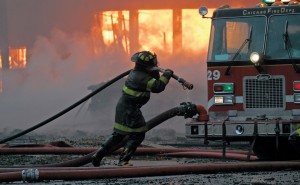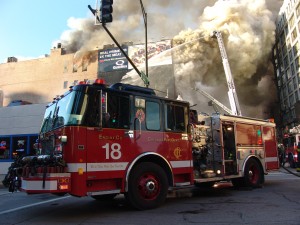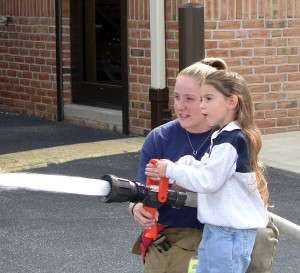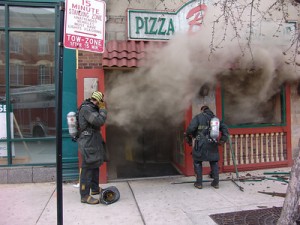 I’m lying on a recliner, its’ faint aroma of sweat and mold having long past become an unnoticed fragment of my day. The white sheet draped over it helps to mask the odor, but it still creeps through, like smoke in a clean room. The sleeve of my sweatshirt is covering my eyes and I am vaguely aware of the snoring of Ted, our engineer, in another recliner just beside me. It is a typical Sunday: there is no housework to speak of, and everyone is tired from the previous nights’ festivities. On nights before a shift we all know that work will arrive the following morning earlier than we’d like. But on weekends the life of the moment cannot be ignored, and we proceed with our indiscretions, content in the knowledge that on weekends there are no random tests. It’s not unusual to catch the passing wave of stale alcohol on weekend mornings. And while I may make a comment, it will only be a sarcastic one, without judgment. Solidarity takes precedence.
I’m lying on a recliner, its’ faint aroma of sweat and mold having long past become an unnoticed fragment of my day. The white sheet draped over it helps to mask the odor, but it still creeps through, like smoke in a clean room. The sleeve of my sweatshirt is covering my eyes and I am vaguely aware of the snoring of Ted, our engineer, in another recliner just beside me. It is a typical Sunday: there is no housework to speak of, and everyone is tired from the previous nights’ festivities. On nights before a shift we all know that work will arrive the following morning earlier than we’d like. But on weekends the life of the moment cannot be ignored, and we proceed with our indiscretions, content in the knowledge that on weekends there are no random tests. It’s not unusual to catch the passing wave of stale alcohol on weekend mornings. And while I may make a comment, it will only be a sarcastic one, without judgment. Solidarity takes precedence.
Suddenly a loud bell shatters my foggy resolve. A female voice announces first our engine and then a neighboring truck are to respond to the call of a fire. Our movements are brisk; I scurry to the front computer terminal and tap the red icon on the screen, which will indicate to the main office that we got the call. John emerges from the kitchen with what looks like flour covering his faded blue work clothes. “I turned off the bacon and didn’t start the eggs yet,” he says, to no one in particular. On Sunday’s we always have breakfast at 10 or 11, instead of lunch at 12. Everyone goes to their side of the engine and first pulls on their bunker pants, then dons their jacket, and climbs aboard. After the last door has shut I say “we’re good,” and Ted pulls the rig out of the firehouse. We struggle with our air tanks amid loud beeping. This rig is new, and while it is very nice in many ways, it has sensors under each seat that alert the central computer that a seatbelt is not engaged, which then reminds all of us with a deafening wail. It’s counterintuitive to think that this moment, above all others, would be the time when we need our seatbelts the most, but we need to get our tanks on. We want to be ready for whatever we find at the scene.
There is a difference in the responses to different types of calls. If this had been an automatic alarm, we would not necessarily get fully dressed with our tanks on, and if it were a medical call we would simply remain in our regular work blues, and John would’ve stayed back to continue cooking. There’s a subtle difference in our speed of movement, one that might not be noticed by outsiders. This is not to say that we care less about those in medical emergencies, but fighting fires is the primary task we all signed up for, and Chicago has a history of at least one fire that was particularly devastating. Even though that was over 100 years ago this is a sensibility that permeates our training and thinking to this day.
 On our way there I look to John and say “who’s doin’ what today?” Everyone has a specific duty: two of the five of us has a permanent role. The engineer drives and at a fire scene stays with the engine to control water pressure. The officer runs the show, making decisions, helping out where it is needed. We three firefighters in the back seats have duties that rotate, and John, being the senior man here today, has the discretion to choose. One person makes the hydrant. It’s the easiest job, but nonetheless extremely important: it would be a rare incident where a crew put out a fire without water. The hydrant man must communicate with the engineer as to which intake he’ll want to hook up to and which hydrant to go to, and when to send the water. The heel man helps leading out the line. There needs to be enough hose laid out at our point of entry so that when we advance into the building we won’t be caught short. It’s horribly embarrassing for that to happen, something that is remembered and talked about for years afterwards. It also needs to be laid out in such a manner that it won’t get tangled, twisted, or otherwise caught under any number of seemingly innocuous objects: car tires and house doors are particularly sinister. The glory position is, of course, the pipe man; this person is the one who puts out the fire. The old school members stick to the idea that it’s the one with highest seniority who always gets the pipe. We typically trade off, with today still being up in the air. “Why don’t I take the hydrant, and have Junior heel you,” he says. I nod, “okay.” His knee must be bothering him again, I think to myself. Junior is new on the job and is the son of another fireman we all know and respect greatly. He’s a good kid and a good firefighter; he’s grown up amid talk of firefighting and there is a lot that he just seems to know instinctively—things that I didn’t at his level of experience.
On our way there I look to John and say “who’s doin’ what today?” Everyone has a specific duty: two of the five of us has a permanent role. The engineer drives and at a fire scene stays with the engine to control water pressure. The officer runs the show, making decisions, helping out where it is needed. We three firefighters in the back seats have duties that rotate, and John, being the senior man here today, has the discretion to choose. One person makes the hydrant. It’s the easiest job, but nonetheless extremely important: it would be a rare incident where a crew put out a fire without water. The hydrant man must communicate with the engineer as to which intake he’ll want to hook up to and which hydrant to go to, and when to send the water. The heel man helps leading out the line. There needs to be enough hose laid out at our point of entry so that when we advance into the building we won’t be caught short. It’s horribly embarrassing for that to happen, something that is remembered and talked about for years afterwards. It also needs to be laid out in such a manner that it won’t get tangled, twisted, or otherwise caught under any number of seemingly innocuous objects: car tires and house doors are particularly sinister. The glory position is, of course, the pipe man; this person is the one who puts out the fire. The old school members stick to the idea that it’s the one with highest seniority who always gets the pipe. We typically trade off, with today still being up in the air. “Why don’t I take the hydrant, and have Junior heel you,” he says. I nod, “okay.” His knee must be bothering him again, I think to myself. Junior is new on the job and is the son of another fireman we all know and respect greatly. He’s a good kid and a good firefighter; he’s grown up amid talk of firefighting and there is a lot that he just seems to know instinctively—things that I didn’t at his level of experience.
With my tank secure I finally engage my seatbelt, and when Junior does the same the wailing stops. There are no reports on the radio yet as to what’s ahead, so we’re all relatively casual and relaxed. More often than not there’s nothing, or maybe just a bit of smoke. It’s frequently a “pot of meat”, which is generic speak for anything left on or in a stove too long that starts to burn. I haven’t put my gloves on yet, as I may need to perform some fine motor tasks, such as releasing the hand can—a five gallon can with a pump and hose that is responsible for putting out more fires than anything else.
When the truck arrives at the side street just ahead of us, it immediately makes the turn and we all groan in unison. The officer screams “MOTHERFUCKER!!! I talked to him about that! Now we’re fucked!” Ted says “I’ll turn left and you guys back me down; just one on the back step.”
A truck, unlike an engine, does not carry water. Instead it carries ladders, cutting and extraction tools, and in general utensils for smashing and breaking just about anything. The truck forces entry, performs search and rescue, and with the large hydraulic main ladder on top, goes to the roof of the building. In a fire super heated gases build up from the highest point on down, and these gases must be allowed to escape so the fire will move vertically rather than spread laterally. The engine puts out the fire, of course, but it would be a very dangerous undertaking without a truck working in tandem. Without a vented roof an exceptionally super heated room could suddenly burst into flames in a rollover; or worse, the opening of a door could cause it explode in a backdraft, due the sudden influx of oxygen.
Typically the engine will go down the street first and stop just past the fire building. That way the hose can be pulled off smoothly. Hose is laid in the beds on the rear of an engine so that it can be pulled off the back, moving away from the rig. The truck needs to be just in front of the fire building so that they can access the roof with the hydraulic main ladder. If the engine is behind them, the hose must be pulled off against its’ natural inclination, and will bind frequently. The only option we have now is to move down the street backwards. This is not an ideal option.
When we arrive at the corner we see a wood frame house with flames leaping 20 feet out an upstairs window half a block ahead. The attitude in the rig changes immediately. In a flash of an instant I think to myself: ‘wow, that’s big; they should send somebody to put that out…Oh yeah. Right.’
 I awaken to the reality and put on my gloves; there will be no fine motor skills involved here: we’ll be using big the guns. Even though the wailing of the seatbelt alarm has stopped the noise level in the cab goes up considerably. Everyone is yelling and planning what’s to be done. We jump out to back down the street, and the officer disappears. He’s several years older than me, and is typically very laid back, but at a fire he has an energy that I could never match. The Tasmanian Devil with a fire coat and helmet.
I awaken to the reality and put on my gloves; there will be no fine motor skills involved here: we’ll be using big the guns. Even though the wailing of the seatbelt alarm has stopped the noise level in the cab goes up considerably. Everyone is yelling and planning what’s to be done. We jump out to back down the street, and the officer disappears. He’s several years older than me, and is typically very laid back, but at a fire he has an energy that I could never match. The Tasmanian Devil with a fire coat and helmet.
I hop on the back step on the driver’s side and stay visible to Ted in his side mirror, and by the time we’ve backed the engine up to 20 feet away from the rear of the truck, the officer is running back towards us, yelling: “pull off the 2½; we’ll go through the front door! The stairs are right inside!”
Hoses come in different sizes: 1¾” is the smallest diameter hose we carry, aside from the hand can, and is used on smaller jobs, such as garages, cars, or trash bins. 2½” is the mainstay; we are officially to use it at almost all times, but sometimes a smaller hose is more maneuverable. There is also 4” hose, but that is mostly used for water intake or feeding the nozzle at the top of one of the trucks’ ladders.
In this case, 2½” is the only option. I grab the top layer of hose off of the left side of the engine bed. It is laid out in a horseshoe pattern, which, when draped over my shoulder almost touches the ground. The layer below it has two such horseshoes laid out side by side, which Junior pulls off behind me.
“Come on! Come on!” the officer is yelling, as if sprinting just isn’t fast enough. In any other situation one would think that he was angry, or criticizing our efforts. But I know him, and this is just how he is; at a fire you just have to do your job, and do it right now.
By the time we get to the door the truckmen are just pushing open the door. “Come on! Open the fuckin’ thing!” our officer screams. This gives me just enough time to take a knee, remove my gloves and helmet, pull my mask on, tighten the straps, pull my hood over my head, and re-glove and re-helmet. I turn the knob on my tank to open it and the brief bell goes off signifying that it’s on. The truckmen are smashing it with their shoulders as one pries with a Halligan bar. “Come on, ya’ fuck! You want me to do that?!?” Despite his relatively small stature, our officer is scrappy.
“We got it!” The truck officer says, and the door grudgingly opens. There is debris behind it that needs to be pushed away. Our officer says to me: “come on!” and disappears into the doorway. I follow with my horseshoe still on my shoulder. Junior is now laying his horseshoes out in a zigzag pattern on the front lawn. I go in, keeping low, and see a stairway on the left. By the time I’m halfway up I can’t see six inches in front of me; the smoke is thick and black. I keep running up the stairs until I run right over our officer, who is kneeling on the landing in font of another door.
“What the FUCK?!?” he says, laughing. “Flake your hose out here; it’s just inside the door.”
“Sorry.” I’m breathing heavily now, and we’re just starting. He calls up the truckmen, who make quick work of this one. Inner doors are lighter, and can often simply be kicked in. I’d begun to flake out the hose near the bottom of the stairs; the remainder I lay out on the landing in as orderly a manner as possible. “Send the water!” he yells into his microphone. I feel the hose jump and begin to stiffen up. As heavy as it was before, it is now much heavier; I couldn’t move all this hose now on my own if my life depended on it. The truckmen help me lay it out neatly.
In the doorway we can only see black in front of us. “Over there! Hit it!” he says. I bleed out the air in the line and then open the pipe on full. It nearly knocks me backwards. I see that Ted’s not being stingy with the water pressure; it’s like pushing a Cadillac up a hill. Junior and John are now behind us and they grab the hose a few feet behind me, which takes off the strain. “Come on, this way!” Our officer is moving ahead, advancing on the fire.
I am vaguely aware of the sounds of windows breaking and other sounds of smashing, chopping, and destruction. These are all man-made sounds, those of boys doing what boys love to do. In what other field can one go screaming down the middle of a street in a giant red vehicle, ignoring stop lights and other generally accepted habits of public decorum, then run up to a perfectly good door and tear it to pieces, and then run inside and spray water all over the place? In its’ purest form, this is quintessentially a boys job. There is no public relations activity going on here. There is no political correctness. There is only the job to do. We’re destroying this house, and everyone is glad that we’re doing so; we actually get paid for it.
As we move forward I see an orange glow amid the blackness. “Hit it! Work it!” I’m being told. I do as instructed and the orange diminishes, folding back into itself. Water is now coming through the fire from the rear of the building, towards us. Another engine company has gained a second point of access and is hitting it. We’re getting doused, which does not please my officer. “Stop the rear attack” he says into his mike. This is our fire; it’s in our district and we got here first. If another company tries to steal our thunder, I know at least one person who will be very vocal about it.
The other line stops. In a few more minutes there are no more flames to speak of, only smoke. “Vent it out that window” he says. Standing five or six feet inside I turn the pipe on and spray out a broken window. This creates an air current that helps to draw the smoke outside. We need to see what we’re dealing with.
It’s only been a few minutes since we arrived, but seems like hours. I can now stand in one place, catch my breath, and observe the entire scene. I am tired but not spent. The physical demand of fighting a fire is like shoveling wet, heavy snow as fast as possible, with a wet blanket draped over your face. Junior relieves me of the pipe and I take off my helmet and mask. Although the smoke has largely cleared, I feel choked by what remains. I pull my hood over my face to filter it somewhat, and put my helmet back on.
The place looks like a squatter’s haven. There is no furniture to speak of, just a couple of old mattresses. Garbage is strewn all over, which we are partly responsible for, but not entirely. The fire looks to have started in a corner in an old mattress; someone probably fell asleep with a lit cigarette. There is no one else here; whoever started this left in a hurry.
While the truckmen tear open the walls, ceiling, and floors surrounding the fire area, Junior washes down the burnt areas to extinguish any remaining embers. Another embarrassing event is to be called back to a fire scene for a re-kindle; the subject of scorn and derision for years to come. Only morons have to put out a fire twice.
Our officer tells the second engine company to pick up, and the Battalion Chief releases them. When we’re done he gets on the radio and says “shut it down.” The line goes slack and Junior unscrews the pipe. Several of the truck guys break our hose apart at its’ couplings and the water drains out. Everyone drags a segment of hose downstairs and outside.
 When I step back into the building for another look, our officer says “hey Steve, come here and see this.” I go into the first floor of the house to find a big, open space, with no large support beam traversing the space. The owner evidently wanted to have a loft space but either didn’t realize that at least some of those walls are there for support, or didn’t care. With 12-15 firefighters upstairs and hundreds, if not thousands of gallons of water on the floor, it’s a miracle that there wasn’t a collapse. It was nothing more that 2”x6” joists holding us all up, and could’ve easily gone from a simple fire to a major rescue, or worse, recovery.
When I step back into the building for another look, our officer says “hey Steve, come here and see this.” I go into the first floor of the house to find a big, open space, with no large support beam traversing the space. The owner evidently wanted to have a loft space but either didn’t realize that at least some of those walls are there for support, or didn’t care. With 12-15 firefighters upstairs and hundreds, if not thousands of gallons of water on the floor, it’s a miracle that there wasn’t a collapse. It was nothing more that 2”x6” joists holding us all up, and could’ve easily gone from a simple fire to a major rescue, or worse, recovery.
“We shoulda let it burn,” I say. There are many buildings that have been redesigned without any consideration for safety. Codes exist for a reason, and while rules can be bent, some people do things that are just plain stupid.
We drag our hose back to the rig and begin the process of re-bedding it. The truckmen jump in and help, with the atmosphere being that of a working party. All that’s missing is the beer and pizza. We talk with friends from other companies and tease about misdeeds and bad decisions. The truckmen defend their inability to open a simple door, and I defend my inability to singlehandedly advance a fully charged 2½” line with greater than 200 pounds of pressure in it.
This fire will remain in our memories for awhile, and for some, it will never go away. John, for example, can remember a fire from ten years earlier: the address, the day of the week, and who was working on which company. And yet, if we ask him to pick up some sliced ham when he goes shopping, he’ll return with sausage, and try to squirrel his way out of it reasoning that “it’s all from a pig, right?”
When the last of the conversations is finished, we all pile into the rig and head home. John says “well, the bacon ain’t gonna be crispy,” to no one in particular.
– Stephen Sawyer
**************************************************************


